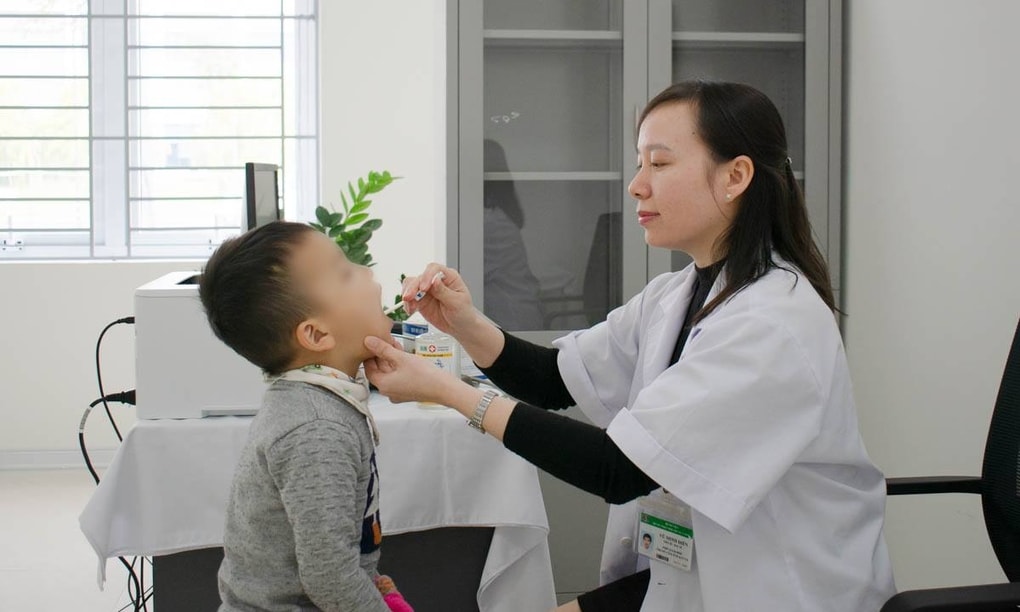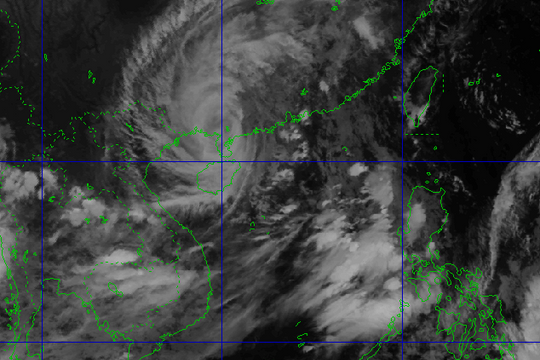Common mistakes when taking care of children on cold days
In cold weather, many parents dress their children too thickly, causing difficulty breathing. They arbitrarily use fever-reducing medicine and stock up on medicine, missing the golden time for treatment.
Doctor Cao Minh Thanh, Head of the Department of Otorhinolaryngology, Hanoi Medical University Hospital, said that in recent days, the temperature in the North has dropped sharply.cold and rainy weathercausing the number of children coming to the clinic for acute pharyngitis, flu, and runny nose to increase.
The main reason is that the changing weather creates favorable conditions for bacteria and viruses to develop, while the child's immune system is not yet fully developed and is susceptible to pathogens. In addition, unscientific childcare is also a risk factor that aggravates the disease when the weather suddenly turns cold.
Doctors say that when it's cold, parents need to pay attention to keeping their children warm, wearing warm clothes, scarves, gloves, socks, hats... However, avoid wearing clothes that are too thick and in too many layers, making it difficult for children to breathe. Sweat can seep back into the body, causing coldness, reducing body temperature, and easily leading to pneumonia.
Many parents use honeycomb coal to keep warm when it is cold. However, in an air-poor environment such as a bedroom, heating coal will create an extremely toxic gas called CO. Depending on the level and duration of exposure, victims of CO poisoning can suffer brain damage, nerve damage, heart rhythm damage, coma, and even death.
The habit of self-medicating when children have fever, cough, or flu leads to late hospitalization, missing the golden time for treatment, which is also quite dangerous - according to Dr. Dang Thi Thuy, Head of Pediatrics Department, Central Hospital for Tropical Diseases.
According to Dr. Thuy, children who are not treated properly are susceptible to secondary bacterial infections, which can make their condition worse. For example, from phlegm stagnation, children can develop secondary otitis media, secondary bronchopneumonia, and more seriously, sepsis.
"At that time, treatment is more difficult, there is a risk of serious complications, hospital stay is longer, treatment costs increase, and it affects the child's health and physical condition later on," the doctor emphasized.
 |
| During the cold season, many children suffer from respiratory illnesses and are taken to the hospital for examination. Photo: Provided by the doctor |
Dr. Nguyen Tien Dung, former Head of the Pediatrics Department, Bach Mai Hospital, Hanoi, said that children with fever but no fussiness, loss of appetite, restlessness, fatigue, and fever less than 38.5 degrees Celsius do not need to use antipyretics. The disease can heal itself after 3-5 days. However, children with chronic diseases such as bronchial asthma, bronchial spasms, cardiovascular diseases, when infected with the flu will be severe, need to be closely monitored.
To proactively prevent seasonal flu, doctors recommend following the Ministry of Health's "5K Message": Mask - Disinfection - Distance - No gathering - Medical declaration. Ensure personal hygiene, wash hands, eat cooked food and drink boiled water, cover your mouth when sneezing. Keep your body warm, eat nutritious food, and get vaccinated.
Pay attention to daily hygiene and cleaning of children's toys, do not let children suck on toys. Avoid taking children to crowded places. Sick children should stay home from school and be isolated at home to avoid spreading the disease to others. Limit adults from kissing children on the cheek as much as possible because it can spread the disease. Limit contact with flu patients or suspected patients.
Children with seasonal flu can be cared for at home, treating symptoms by drinking plenty of water, using fever-reducing medicine as prescribed by the doctor. Apply warm compresses with a soft towel or wipe the child's body with a warm towel for no more than 10 minutes an hour when the child has a high fever, fever affects the child's daily activities. Encourage children to drink plenty of water from fruit, soup, oresol... When provided with enough water, children usually urinate once every 4 hours.
Children with worsening symptoms such as persistent high fever, fatigue, restlessness, discomfort, headache, nausea should be taken to the hospital for examination and treatment.







.jpg)
